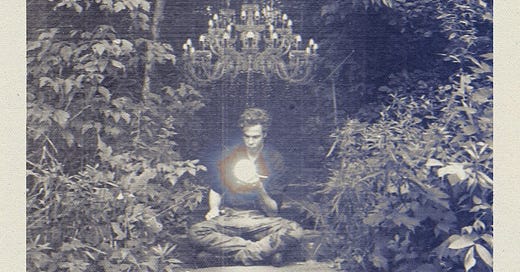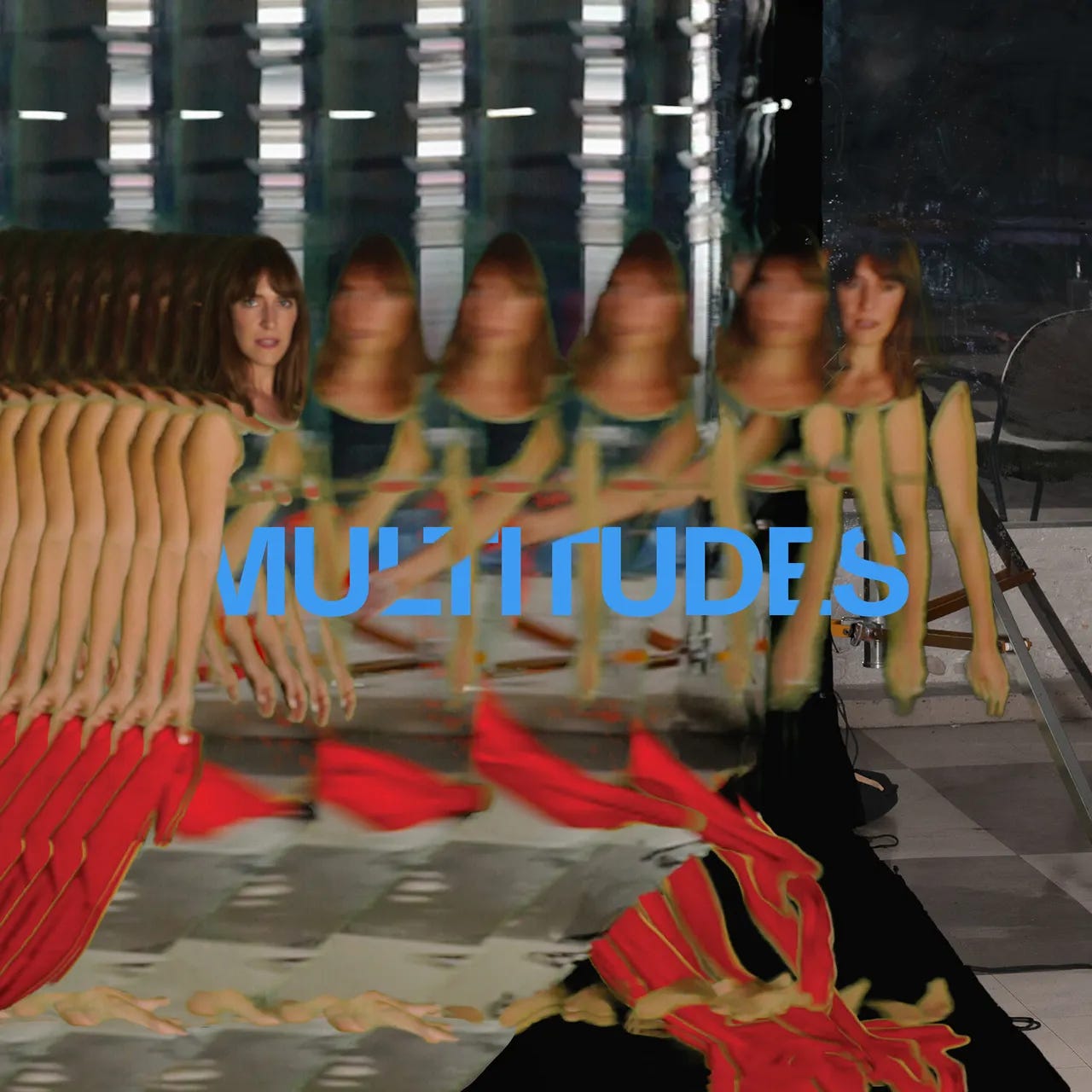Adventures in Listening, May 23, 2023: Major League Troubadours
A singer/songwriter round-up featuring Josh Ritter, Feist, and The Tallest Man on Earth.
Josh Ritter - Spectral Lines
In his new book On Getting Out of Bed, Alan Noble reminds us, again and again, that life is hard. Nevertheless, he says, for the Christian, simply getting out of bed in the morning can be a righteous act of witness-bearing— a way of testifying that the world God made is good, and that even our suffering will ultimately be bent toward his redemptive purposes.
As far as I know, Josh Ritter is not a Christian, yet his new album seems to me like it represents a similar kind of witness-bearing. Dedicated to the memory of his mother, Spectral Lines is haunted by loss, grief, and violence. “They wring your little heart like a rabbit,” Ritter sings in “Honey I Do,” and he might as well be describing any of the dark powers and principalities at work in this world. In another song, Ritter almost gives in to a kind of fatalism: “Whatever burns will burn,” he mutters. Yet for as grief-stricken as this record is, for as clear-eyed as Ritter can be about the hardship of life, Spectral Lines also finds him engaging in active longing, even hope. “Someday there’s gonna be justice,” he pledges in the album’s final song. “Will it be today?” Here he is joining his voice with the Psalmist’s: “How long, O Lord, how long?” Simply raising the question feels to me like a radical implication: Maybe the world isn’t meant to be brutal, and maybe it won’t be forever. Maybe it’s worth rooting for, even in its fracture.
This is heavy lifting even by the standards of Josh Ritter, a profound and prolific singer/songwriter whose body of work warrants serious appraisal. Spectral Lines is among the most mysterious and alluring albums he’s ever made— a shimmering and seamless tapestry of folk songs, field recordings, and spoken-word poetry, wrapped in an ethereal sheen conjured by ambient keyboard textures and wispy vocal harmonies. This is not the rockin’, motor-mouthed, extroverted Ritter of Sermon on the Rocks or Gathering, though there are certainly sparks of that same energy: “For Your Soul” is a funky slice of uptempo R&B, catnip for fans who prefer Ritter in his “Right Moves” mode. More typical of the album’s sonic milieu are “Horse No Rider,” a dreamy wash of voices and synths, and “In Fields,” a campfire song built from lo-fi strumming and crooning. These songs sound spare but they aren’t exactly spartan, adorned as they are with layers of environmental noise and textured production flourishes, drawing the listener deeper into Ritter’s enigmatic, dreamlike narratives. There are some surprising left-turns— you might not expect such an ethereal, inward-looking record to pay direct tribute to “Crimson and Clover” at a key moment, but there it is!— but there are also a few moments where Ritter scales back the experimentation to lean into his singer-songwriter wheelhouse— nowhere more so than on “Strong Swimmer,” a striking hymn to maternal love that provides an emotional anchor for this rich, strange, haunted record.
Feist - Multitudes
A few years ago, in a song called “I Contain Multitudes,” Bob Dylan gave us this immortal aphorism: “I paint landscapes, and I paint nudes.” Now Leslie Feist has released a Multitudes of her own, and— if we’re going to use Dylan’s taxonomy— I’d say it’s mostly a collection of nudes. With just a couple of exceptions, the songs on this album are all studies in intimacy, vulnerable in their subject matter, their stripped-down arrangements, and Feist’s unguarded singing. Though conceived during the COVID lockdowns, the songs are mostly uninterested in painting the sociopolitical landscape, instead focusing inward to meditate on motherhood, self-discovery, and the search for meaning beyond romance. Even the songs that are ostensibly about ecological peril are really about grappling with personal culpability in the face of an unassailable terror. Nearly all of them center the rustle of acoustic guitar strings, the delicate quiver in Feist’s voice. The arrangements sound simple even when they aren’t; there are pianos, multi-tracked vocals, and percussive effects adding subtle depth and texture, painterly flourishes that only further highlight the intimacy in Feist’s writing. Exceptions include “In Lightning,” an album-opening fakeout with a lurching, skittering beat, and a thunderous anthem called “Borrow Trouble”— the closest Multitudes ever comes to “1234” commercial appeal. These songs provide welcome blasts of energy, but most of Multitudes is contemplative and quiet: Feist sings about the redwings she sees just beyond her window, and muses about how, now in her late 40s, she still has so much to learn about love. It may not be the most immediate or hooky music she’s ever made, but to my ears it sounds like the warmest, the most confident, and the most contented— an album born of enough self-assurance to let the singer’s emotional openness take center stage, unshielded and unabated. Standout: “Forever Before,” a gut-wrenching song of gratitude from a first-time, adoptive mom. (Incidentally, it would make a great double feature with Josh Ritter’s “Strong Swimmer!”)
The Tallest Man on Earth - Henry St.
Do you remember all the things you longed to do, just as soon as the COVID lockdown was over? Maybe your heart’s desire was to go back to church, to live sporting events, or to the movie theater; maybe it was just to head to Target without any anxiety about contracting a fatal virus. The new album from Kristian Matsson, aka The Tallest Man on Earth, comes in hot with just-got-out-of-quarantine energy, as if the singer is newly committed to making every second of his wild and precious life count. “I’m gonna breathe and work for every little heart I know,” he sings early in the album, in what amounts to a mission statement: The songs on Henry St. loosely chronicle life as a traveling songwriter with a new lease on life, but more broadly they’re animated by a zeal to connect, a joy in recognizing the humanity in others. In his Pitchfork review, Grayson Haver Currin dings the album for being lyrically broad, but to me the album’s attempted universality is a feature, not a bug: I love it not because it has poetic precision but because it conveys such an endearing sense of earnestness, big-heartedness, and goodwill. In “Major League,” he persuades me of an American optimism that can only be seen through the eyes of an immigrant, suggesting romance and renewal through a string of references to Randy Newman, Cleveland, and professional baseball; it doesn’t make linear sense but it does make emotional sense. Musically, Matsson’s work is supported by producer Nick Sanborn and a cast of top-drawer supporting musicians, who gracefully flesh out these songs without compromising their emotional intimacy. This is no small achievement, and it makes Henry St. my favorite Tallest Man record since Shallow Grave.
Switchfoot - The Beautiful Letdown (Our Version)
People joke about contemporary Christian music always being just a few years behind secular trends, so perhaps it was inevitable that, in 2023, we’d get a CCM-adjacent band aping Taylor Swift’s full album re-recording project. This 20th anniversary edition of Switchfoot’s signature album doesn’t come with any bonus cuts or “from the vault” material, but it does change up the sound of the original recordings pretty noticeably, specifically by boosting the color and texture provided by keyboards and synths. It makes for a richer, fuller-sounding version of what was already a kinetic and engaging rock and roll record, addictive for its sheer momentum but also for its questing spirit. (Surely no songwriter ever made Kierkegaard sound catchier than Jon Foreman does here.) Listening to these songs for the first time in some years, I can immediately reconnect with everything that made this album so formative for so many, myself included. For those of us who were raised in a Christian environment that misconstrued the nature of certainty, Switchfoot’s vulnerability was a tonic. And for those of us who’d grown accustomed to Christian music that claimed to have all the answers, there was something bracing about hearing Switchfoot ask good questions. This is your life. Are you who you want to be?








